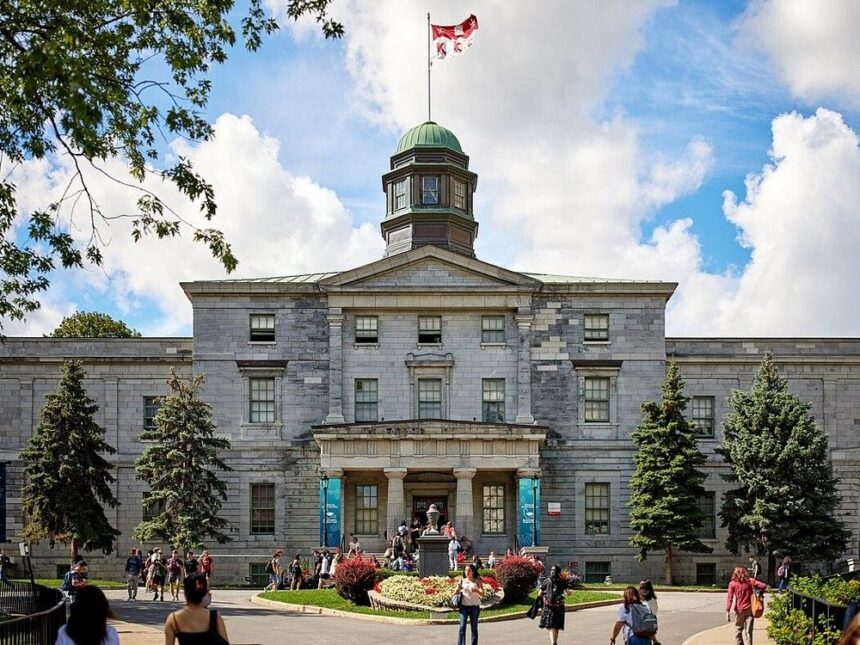As storm clouds of international uncertainty gather, Canadian university leaders are making a determined pitch to both federal and provincial governments: invest now in higher education or risk losing a critical opportunity to attract global talent.
“We’re at a pivotal moment,” says Paul Davidson, president of Universities Canada, the organization representing 97 institutions across the country. “Several countries that have traditionally been education destinations are experiencing political upheaval that makes Canada more attractive than ever.”
This window of opportunity comes as universities in the United States face growing polarization, while British institutions grapple with Brexit fallout and Australian schools navigate shifting regional politics. Against this backdrop, Canadian universities see a chance to position themselves as beacons of stability.
In meetings with government officials last month, university presidents emphasized that modest investments now could yield significant returns in terms of innovation, research output, and economic growth. McGill University President Deep Saini pointed to Quebec’s unique position during these discussions.
“We offer something truly distinctive – world-class research environments alongside vibrant multicultural communities. But we need resources to compete globally for the best minds,” Saini explained at a recent education forum in Montreal.
The timing feels particularly urgent for many academic leaders. The United States presidential election this November has created uncertainty around immigration policies that could affect international students and scholars. Meanwhile, campus tensions around geopolitical conflicts have further complicated the academic landscape in many countries.
Federal data shows Canada already attracts over 800,000 international students annually, contributing roughly $22 billion to the economy. Yet university leaders argue we’re only scratching the surface of potential growth areas, particularly in graduate studies and research positions.
“When talented researchers and students choose Canada, they bring networks, perspectives and skills that enrich our communities,” notes Meric Gertler, President of the University of Toronto. “They help solve our most pressing problems – from climate change to healthcare innovation.”
The requests from university leaders aren’t simply about increasing enrollment numbers. Their proposals focus on creating dedicated scholarship programs, streamlining immigration pathways for academic talent, and increasing research funding to make Canadian institutions more competitive globally.
Quebec universities face both challenges and opportunities in this landscape. Language requirements create an additional hurdle for some international recruits, yet French-language universities offer unique appeal to students from francophone countries experiencing political upheaval.
“We need to recognize Quebec’s distinct educational identity while ensuring our institutions can compete internationally,” says Sophie D’Amours, rector of Université Laval and chair of the Bureau de coopération interuniversitaire, which represents Quebec universities.
The province already offers tuition advantages for French-speaking international students, but university leaders suggest these programs could be expanded and better promoted globally.
Not everyone supports expanded international recruitment efforts. Critics point to housing pressures in university communities and question whether resources should instead focus on domestic students. Others worry about brain drain if international graduates don’t remain in Canada.
Economist Mikal Skuterud from the University of Waterloo acknowledges these concerns but sees the bigger picture. “The evidence suggests international students who become permanent residents contribute significantly more in taxes and innovation than any initial public investment in their education,” he explains.
University leaders are quick to emphasize that international recruitment should complement, not replace, commitments to domestic students and underrepresented communities. Several proposals explicitly link international initiatives with expanded opportunities for Indigenous students and other equity-seeking groups.
The financial ask varies by institution, but collectively universities are seeking approximately $500 million in additional federal investments, with matching provincial contributions expected. These funds would support scholarships, research positions, and infrastructure improvements.
“When we look at what competitor countries spend to attract global talent, Canada’s investment has been modest,” Davidson points out. “Australia, for example, has been much more aggressive in positioning their universities internationally.”
What makes this moment particularly compelling is the convergence of international uncertainty with Canada’s growing demographic challenges. With an aging population and specific skill shortages in healthcare, technology, and green energy sectors, talent attraction has become a national economic priority.
François Legault’s government in Quebec has shown openness to the universities’ pitch, particularly where it aligns with the province’s labour market needs. At the federal level, initial responses from ministers suggest support for the concept, though funding commitments remain uncertain.
As university leaders continue their advocacy, they emphasize that the benefits extend beyond campus boundaries. Research partnerships with local industries, innovation spillovers, and community cultural enrichment all stem from diverse academic environments.
“This isn’t just about university prestige,” concludes McGill’s Saini. “It’s about positioning Canada and Quebec for success in a knowledge economy where talent is the most valuable resource.”
With global uncertainties showing no signs of abating, the question now becomes whether governments will seize this moment to position Canadian universities as harbors in the storm – and whether that investment will yield the returns university leaders promise.






